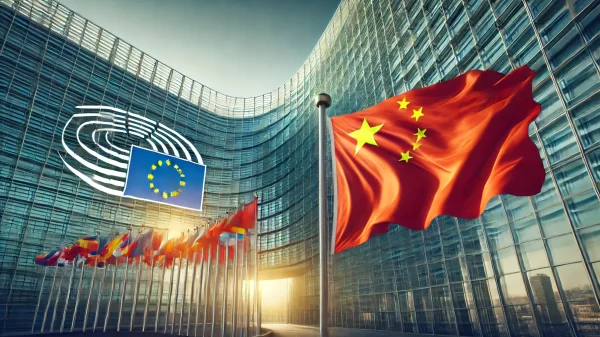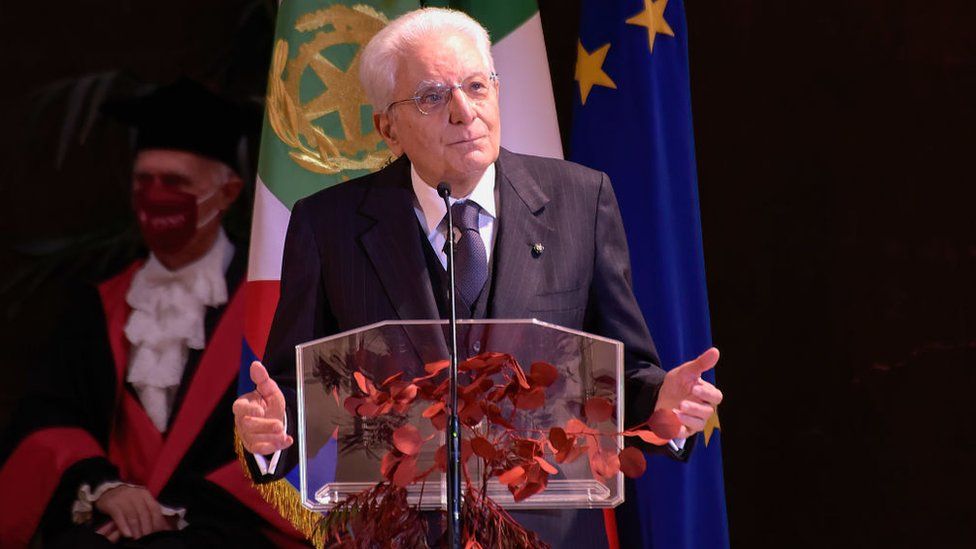Italian President Sergio Mattarella has agreed to serve a second term after coalition parties failed to agree on a compromise candidate for the office.
The 80-year-old emerged as the most popular choice after six days of often tense voting in Rome.
He had expressed a desire to leave office, but local media reported Prime Minister Mario Draghi had convinced him to stay for the “stability” of Italy.
He is expected to be formally re-elected later on Saturday.
Announcing Mr Mattarella’s decision to remain in office, Minister for Regional Affairs Mariastella Gelmini hailed the former Constitutional Court judge’s “sense of responsibility and his attachment to the country and its institutions”.
The parties in Italy’s governing coalition agreed to re-elect Mr Mattarella on Saturday after seven rounds of voting failed to produce an alternative candidate and revealed deep divisions in Mr Draghi’s wide ranging coalition government.
Italy’s presidency is elected through a secret vote in an electoral college of 1,009 Senators, MPs and some regional delegates, with the first candidate to receive two-thirds of the vote declared victorious.
Mr Mattarella emerged as the compromise candidate after many lawmakers abstained from voting and candidates put forward by the governing parties failed to gather enough support.
Antonio Tajani, national coordinator for the centre-right Forza Italia party, told the BBC that support for Mr Mattarella was the only proposition most MPs agreed on.
“Mattarella has performed his function impeccably,” Mr Tajani said. “In the absence of a political agreement on other people, it is right that the point of balance is still him.”
It is unclear whether the 80-year-old intends to serve a full seven year term, with some in Italy suggesting that he could step aside to allow Mr Draghi to take his place after Italian elections in 2023.
The Italian presidency is a largely ceremonial role, though its power to grant the dissolution of parliament, choose new prime ministers and deny mandates to weak coalitions means it takes on great power during times of political crisis.
In recent years, as Italian politics has become more fragmented, the role has become increasingly important and Mr Matarella has been praised by many in Italian politics as a stabilising influence at a time where several governing coalitions have collapsed.
Last year, he stepped in to avert another political crisis caused by the resignation of Prime Minister Giuseppe Conte over the country’s response to coronavirus and appointed Mr Draghi in his pace.
Mr Mattarella said at the time that Italy needed a “high-profile government” to tackle the Covid-19 pandemic and the worst economic crisis in decades.




























